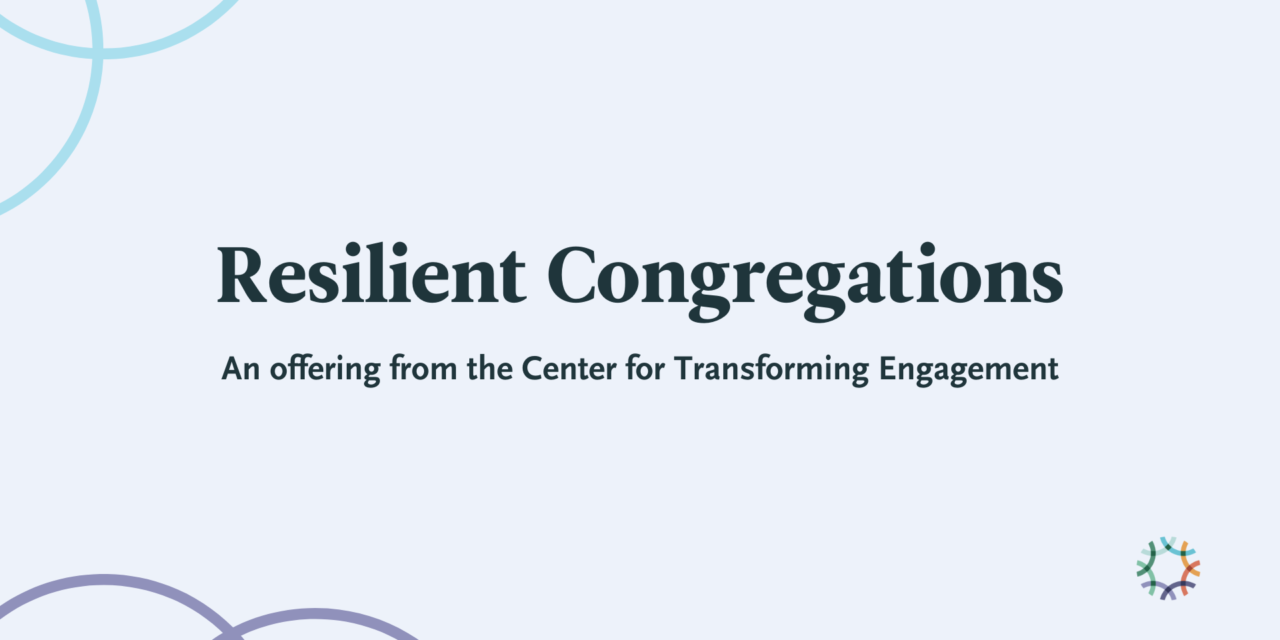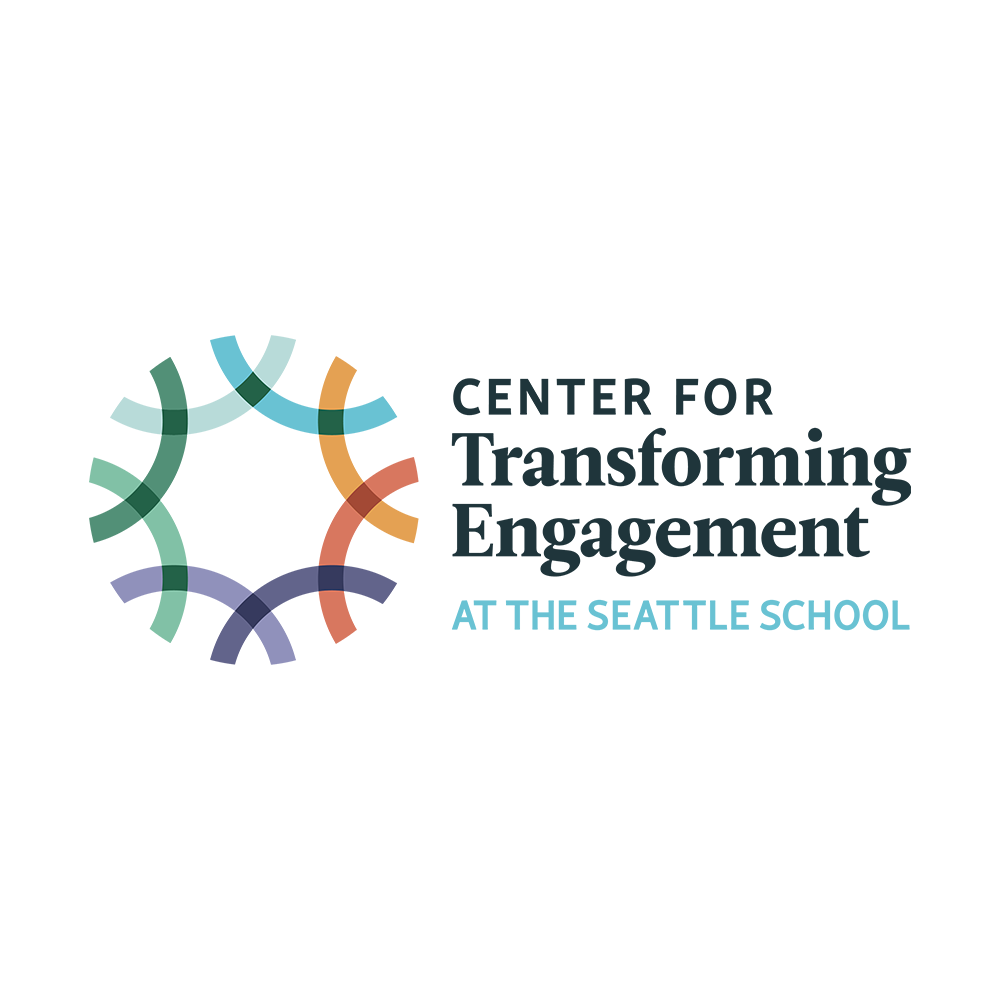Follow real congregations as they become more resilient.
Christ & Cascadia editor Forrest Inslee talked with pastors of several Cascadia-region churches in the Resilient Congregations program. The pastors shared about the power of listening to the stories of their congregations as a way to develop their leadership teams and create a statement of identity for their congregations.
Like Christ & Cascadia, the program is an offering of the Center for Transforming Engagement that supports innovative faith practice in the region. Resilient Congregations teaches congregational teams deep listening and design-thinking in four stages:
- Listening to your congregation’s stories to understand your congregational identity.
- Listening to the wider community to understand (not assume or guess at) community needs and opportunities.
- Designing a program with the community to meet the real needs in ways that fit with the congregation’s identity and community’s desire.
- Implementing the program with grants provided by the Center for Transforming Engagement.
Stanwood United Methodist Church
“Resilient Congregations program is a process of un-learning the way we have done ministry in the community [in the past]. There are ways that God’s grace and mercy can be shared in the greater community that can be uncovered—not by our intentions of making it happen, but by actually listening and seeing what people need.”
To discern the identity of their congregation, Stanwood UMC spent a whole Sunday service in small groups around tables, hearing each others’ stories about meaningful memories of their life as a church. Pastor Justin White said that the stories clearly revealed two themes that have helped the church to better live out its identity in the community of Stanwood. One question that they are focusing on now is “Who is missing from the church context who needs to hear the good news of God’s grace and openness, and how can we be that church that welcomes those people?”
Fairwood United Methodist Church
At stake is “the actual movement of a church—if it is going to be productive, if it is going to be relevant, it needs to navigate in a way that really communicates to the changing landscape of our community and the changing landscape of our time. This is not ‘Church 101’ from ten years ago. This pandemic has really changed the way we do ministry and mission. We need to see this from the perspective of God, how God is seeing the opportunities for the church—not just how we did things in the past.”
Post-pandemic reconnection—this was one impact of the Resilient Congregations program for Fairwood United Methodist Church in Renton, Washington. Pastor Ferdie Llenado discusses how energizing it was to see the identity of their church through the stories of congregations. This experiential way of approaching identity provided ways to address the past while proving healing and transformative possibilities for the future.
Seattle Vineyard Church
“I think the challenge as a follower of Christ is coming in with assumptions. And I think that is what makes listening difficult—when we come in with agendas. Deep listening requires dropping those agendas, being present in the moment, valuing that person’s story and not worrying about the end result of that conversation beyond the goal that the conversation is authentic.”
Encouragement that God is at work fuels pastoral ministry. As pastors who started at Seattle Vineyard shortly before the pandemic began, the Hixes found the story-telling part of the Resilient Congregations program was the kind of fuel they needed to lead into the future. John said, “Sometimes you tend to focus on what the here and now is when you are talking about someone’s life, and to hear stories about significant, meaningful experiences that they had with God in the church—I found it very encouraging.”
The program has helped the Hixes find coherence between the church’s past and present. As Judith said, “I think there is a temptation when new pastors come in to change the whole thing. But a part of our value is to honor the past while going forward into the future.” John noted that leading a church in times of change is “about being adaptable—not just pulling forward a methodology that has worked in the past.”
Applications for the 2023 Resilient Congregations program will be opening soon. If you are interested, email resilience@theseattleschool.edu. Learn more about Resilient Congregations here.


